DCF Magazine.
Our reference articles offer free access to a wide range of current knowledge related to digitalization in the coffee industry.
Perceptions, attitudes and their role in the process of appropriation of digital technologies
Despite the opportunities offered by digital technologies in agricultural production, there are still low levels of appropriation in the field. The variables that play a part in the appropriation or non-appropriation of technologies have been studied more successfully – they range from factors related to access and the expertise required, to technical factors such as usability, compatibility and the relevance of information provided. It is important, however, to consider the role played by psychological factors in the appropriation of digital technologies. Among those factors, resistance to change, perception of similarity or compatibility, and trust are particularly important.
Using satellite imagery to improve farmer living standards
Did you know that reducing deforestation is one of the most effective options for climate change mitigation? Coffee farms have the potential to reduce deforestation through shade trees but often depend on clearing them to create firewood or to plant more crops. How do we mitigate climate change while not losing sight of our producers' needs? Dutch impact tech startup Carble has come up with a powerful answer: the combination of satellite imagery and digital payments. Partnering with satellite solutions provider Satelligence, they help coffee companies estimate how much carbon is stored by the trees of specific coffee farms so that a premium can be paid to producers based on those calculations.
How third-party logistics can maximize supply chain performance
UK online retailer Coffee Friend is a good example of how to handle coffee logistics in a way that benefits both the company and the consumer. “We thought that the meaning of having a great coffee at home symbolizes not only the taste itself but also the feeling of how great it is to always have coffee next to you,” says Gediminas Maziliauskis, Head of Supply at Coffee Friend.
Coffee logistics and technology: What do experts have to say? Part 2
Following up the first webinar session of the three-part series The Logic of Coffee Logistics, the second part, held on June 2nd, explored concrete case studies and challenges to digitalized logistics. This session was moderated by Stuart Ritson from Osito Coffee, panelists Kenean Asefa Dukamo of Daye Bensa Coffee, Kume Chibsa of Afrovalley, and Maria Grajales Gomez of Col-Spirit. The series concluded with a session held on June 16th, that was focused on looking toward the future of coffee logistics. Together with moderator Amaris Gutierrez-Ray of Joe Coffee Company, the panelists Brianna Dickey of CropConex, Guillermo Grassi of edoxOnline, and Felipe Cam of Mercon Coffee Group shared their perspective.
Coffee logistics and technology: What do the experts have to say?
The current logistics crisis is affecting supply chains in virtually every sector and part of the world – and the coffee industry is no exception. In a bid to offer some context and understand how – and if – technology and digitalization can help ease the pressure on coffee sector operations, Digital Coffee Future held on May 19th the first conversation of its three-part webinar series The Logic of Coffee Logistics: Overcoming the Logistic Challenges of the Coffee Supply Chain. During this introductory event, Colleen Walsh of Olam Specialty Coffee, Don Lawrence of Intelligentsia, and Aleksandrs Sidorecs of Cognizant shared their experiences with us.
Digitalization of coffee logistics, a solution to overcome future challenges?
For the past two years, supply chains have faced many challenges and coffee has not been the exception. The Covid-19 pandemic had a massive impact on consumption behavior around the world, which directly impacted the logistics sector. With the aim of mitigating the effect of these uncertain circumstances, coffee companies are looking for new ways to counteract these logistics challenges. Among the many alternatives being adopted, the use of digital technology has started proving that reinventing logistics is possible.
Sustainable Coffee Buyer’s Guide: unraveling fair prices
In an industry where transparency and sustainability are increasingly demanded – yet those terms are not uniformly defined – it is surprisingly difficult to figure out whether farmers are paid enough to cover the basics. With this in mind, Colombia-based coffee export company Azahar Coffee set out to develop a tool to inform socially conscious coffee buyers about the price point required for farmers to achieve different levels of income. After three years of manually collecting data, the company presented the inaugural version of their Sustainable Coffee Buyer’s Guide (SCBG) at the 2022 SCA Expo last month.
Information technologies and education for a sustainable coffee sector
After climate change, the lack of generational replacement is most likely the biggest threat to coffee production on a global scale. Mirroring global geographic dynamics – and as a consequence of the economic hardships faced by millions of coffee producers – new generations choose to migrate from rural areas towards cities seeking job opportunities and better access to goods and services such as education. While Information and Communications Technologies alone may not be enough to change this, they can play an important role in changing the dynamics.
Education for digitalization: creating opportunities for coffee professionals at origin
According to data published by the International Coffee Organization, coffee producers have seen their average income decline by up to 10% over the last few years, leaving thousands well below the poverty line. In Nicaragua, for example, the proportion of those living on less than US$1.90 per day has gone up by a chilling 50%. While this reality is in part direct reflection of the low and volatile prices that have plagued the industry since the late 1990s, it is far from the only factor involved in the hardships affecting coffee producers worldwide.
Mercanta’s traceability platforms and customer’s engagement
We talked with Ben Palmer, Head of Sales for the UK & Europe at Mercanta, about his company’s efforts to digitize their supply chain and enable the transition to evidence-based storytelling. Mercanta is a renowned actor in the Specialty Coffee industry due to their relationship-based sourcing model, which aims to build long-lasting partnerships with their producers and create an economically sustainable environment along its supply chain.











